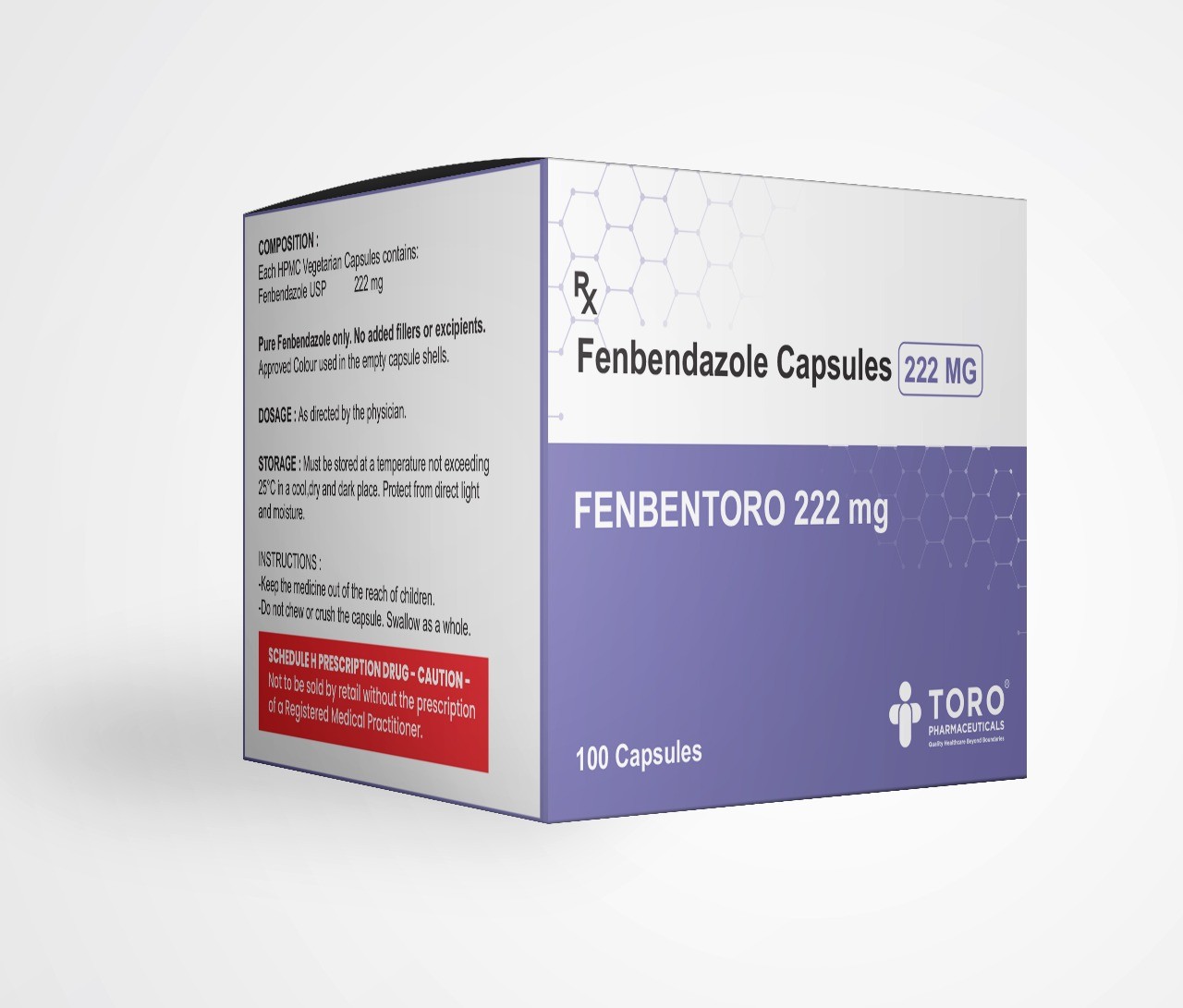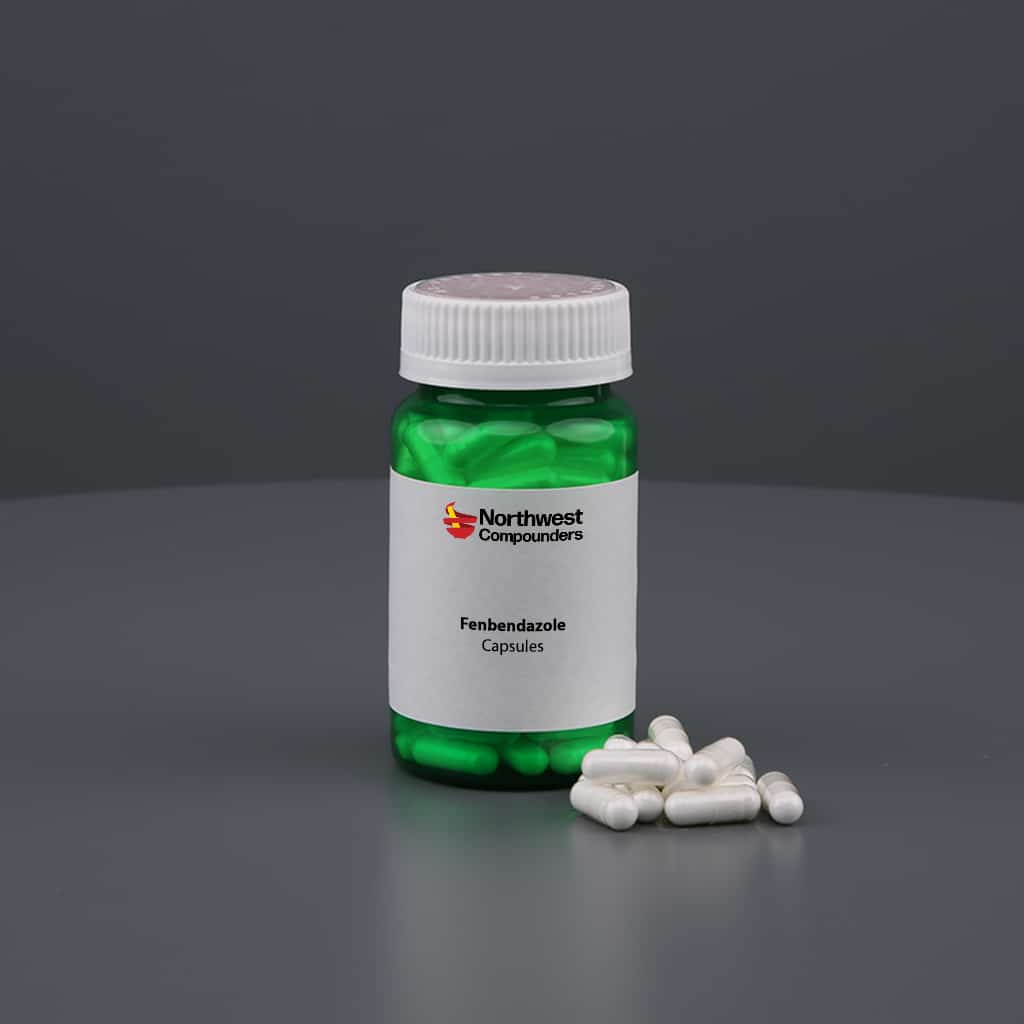Discovering the Systems Behind Fenbendazole and Its Effect On Pet Health And Wellness
Fenbendazole is a widely made use of anthelmintic known for its effectiveness versus different parasites. Its key device entails the inhibition of microtubule formation, which interferes with critical processes in these virus. Past its antiparasitic residential or commercial properties, fenbendazole additionally shows up to boost immune responses and has anti-inflammatory benefits. Comprehending these complex impacts could disclose new applications for pet health and wellness. Questions remain concerning its complete capacity and security profile.
The Pharmacokinetics of Fenbendazole
The pharmacokinetics of fenbendazole, an extensively used anthelmintic in veterinary medicine, involves the research of its absorption, distribution, metabolic rate, and excretion within animal systems. After management, fenbendazole is quickly taken in from the intestinal tract, with peak plasma concentrations taking place within hours. Its distribution is affected by factors such as cells binding and lipid solubility, permitting it to pass through numerous tissues efficiently. The medication undertakes extensive metabolic process primarily in the liver, where it is converted into active and non-active metabolites. These metabolites play a duty in the drug's total efficiency and safety and security profile. Discharging takes place mainly via feces, with a smaller sized proportion eliminated through urine. The half-life of fenbendazole varies among types, which impacts dosing regimens. Understanding these pharmacokinetic buildings is vital for maximizing its therapeutic usage and guaranteeing effective bloodsucker control in vet methods.
Systems of Action Against Parasites
Fenbendazole applies its antiparasitic impacts largely with the restraint of microtubule development in parasites. This disturbance influences their architectural honesty and cellular functions, causing damaged basal metabolism. Because of this, the drug efficiently compromises the survival and recreation of numerous parasitic microorganisms.
Restraint of Microtubule Development
Inhibition of microtubule formation stands for an essential device where particular anthelmintic representatives, including fenbendazole, exert their results on bloodsuckers. Fenbendazole binds to tubulin, a healthy protein that develops microtubules, interfering with the polymerization process essential for microtubule setting up. This interruption hinders vital cellular features, including mitosis, intracellular transportation, and architectural integrity. As microtubules play a crucial role in preserving the shape and function of parasitic cells, their restraint results in cell cycle apprehension and ultimate death of the parasite. This device is particularly reliable against nematodes, as their reliance on microtubules for mobility and nutrient absorption makes them vulnerable to fenbendazole. Subsequently, the inhibition of microtubule development is an important aspect of fenbendazole's restorative effectiveness in veterinary medication.
Disturbance of Basal Metabolism
Interrupting basal metabolism is another crucial system through which fenbendazole targets parasitic microorganisms. This anthelmintic alters the power manufacturing pathways within parasites, largely affecting their ability to generate adenosine triphosphate (ATP) By inhibiting sugar uptake and interrupting mitochondrial function, fenbendazole limitations the power resources vital for the survival and recreation of these microorganisms. Therefore, bloodsuckers become progressively vulnerable to ecological stress and anxieties and immune responses. The interference in power metabolism not just influences the parasites straight however also reduces their capability to take in nutrients, even more harming their growth - 222 mg. In general, the disruption of energy metabolic process represents a basic element of fenbendazole's effectiveness against different parasitical infections, contributing considerably to improved pet health end results
Prospective Adverse Effects and Security Account
The prospective side results and safety account of fenbendazole warrant cautious factor to consider, specifically in veterinary applications. While typically pertained to as safe, some pets may experience negative responses, consisting of intestinal disruptions such as vomiting and looseness of the bowels. Additionally, neurological signs, although uncommon, have actually been reported in delicate individuals, highlighting the requirement for monitoring throughout treatment.

Fenbendazole's security in different species, including pet dogs and pet cats, has actually been recorded, yet dose and period of therapy have to be very carefully handled to lessen risks. Pregnant or lactating animals might additionally call for special interest, as the results on developing fetuses or nursing offspring are not totally understood.
Regular vet examinations can aid minimize potential adverse effects and assure the medicine is provided suitably. While fenbendazole is a reliable anthelmintic representative, alertness concerning its side impacts is vital for keeping pet health.
Fenbendazole's Influence on Immune Feature
Fenbendazole has actually been noted for its potential to regulate immune system actions in animals. Its anti-inflammatory residential properties may add to enhanced immune feature, providing a twin benefit in managing wellness (fenbendazole 222). Recognizing these impacts is necessary for assessing fenbendazole's function in check my blog vet medication
Immune System Inflection

Anti-inflammatory Residences
Anti-inflammatory results represent a substantial element of fenbendazole's impact on immune feature. Study suggests that fenbendazole may reduce the manufacturing of pro-inflammatory cytokines, which are pivotal in mediating inflammatory feedbacks. By modulating these cytokines, fenbendazole can possibly alleviate inflammation-related conditions in pets. This anti-inflammatory action not only help in handling signs connected with different illness but also enhances overall immune system efficacy. Furthermore, its capacity to advertise a balanced immune reaction helps prevent extreme inflammatory damage, which can bring about chronic health and wellness issues. As a result, fenbendazole's duty in inflammation monitoring underscores its significance in vet medicine, giving a double benefit of antiparasitic activity and body immune system assistance for animal health and wellness.
Applications Past Conventional Parasitical Infections
While mostly identified for its performance against numerous parasitic infections, fenbendazole has gathered attention for potential applications beyond this conventional range. Current researches recommend that fenbendazole might have beneficial results on cellular wellness and immune reaction, making it a fascinating candidate for managing other wellness conditions in pets. For example, its reported anti-inflammatory homes might offer relief for animals struggling with chronic inflammatory illness. In addition, some study indicates that fenbendazole can contribute in sustaining the overall wellness of animals by enhancing nutrient absorption and stomach health and wellness. Its possible as an adjunct therapy in cancer cells therapy has sparked interest, as initial searchings for recommend it might prevent tumor cell growth in certain contexts. These diverse applications highlight fenbendazole's convenience, Bonuses urging additional exploration into its diverse benefits for pet health past its traditional use as a deworming representative.
Future Research Instructions and Implications for Pet Health
The exploration of fenbendazole's prospective applications has actually opened up brand-new avenues for study More Bonuses aimed at boosting animal wellness. Future research studies can concentrate on its performance against a wider series of microorganisms, including microorganisms and infections, thereby increasing its duty in veterinary medication. The effects of fenbendazole's mechanisms, such as its effect on immune modulation, warrant even more examination to understand exactly how it can reinforce general health in various types.
Additionally, research study may explore excellent dosages and formulations to take full advantage of efficiency while reducing possible adverse effects. Examining fenbendazole's collaborating impacts with other medications could lead to much more reliable therapy protocols. Longitudinal researches examining lasting results in pets treated with fenbendazole can offer useful insights into its safety and security and efficiency. In general, the continued expedition of fenbendazole provides appealing capacity to improve pet wellness, demanding a joint strategy among researchers, vets, and pharmaceutical designers to promote advancements around.
Regularly Asked Questions
Can Fenbendazole Be Used in Livestock for Parasite Avoidance?
The concern of whether fenbendazole can be made use of in animals for bloodsucker prevention is pertinent, as manufacturers look for effective therapies (222 mg). Study suggests it might offer advantages, but proper standards and vet advice are essential for risk-free usage
What Is the Suggested Dose of Fenbendazole for Various Pets?

Exist Any Kind Of Understood Medicine Interactions With Fenbendazole?
Existing understanding indicates that fenbendazole may connect with certain medications, potentially affecting their effectiveness or metabolism. Vet experts suggest talking to a veterinarian to evaluate individual pet situations and figure out any type of feasible communications prior to administration.
Just How Does Fenbendazole Compare to Various Other Antiparasitic Drugs?
Fenbendazole is commonly contrasted to other antiparasitic drugs based upon efficiency, spectrum of activity, and safety and security accounts. It is favored for its effectiveness versus a vast array of bloodsuckers while typically showing very little side results in animals.
Is Fenbendazole Effective Against Viral or Microbial Infections in Animals?
The efficiency of fenbendazole versus viral or bacterial infections in pets stays unverified. Research mostly concentrates on its antiparasitic homes, with restricted proof supporting any type of duty in dealing with non-parasitic infections in vet medication.